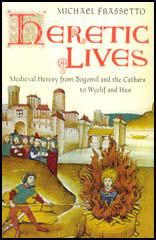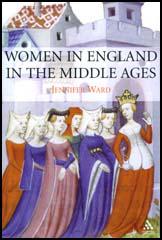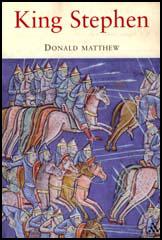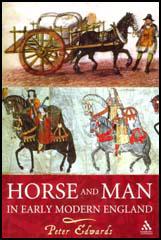Spartacus Review
Volume 2: 8th October, 2007
The Medieval World

Title: Heretic Lives - Medieval Heresy
Author: Michael Frassetto
Editor:
Publisher: Profile
Price: £20.00
Bookshop: Amazon
Spartacus Website: Medieval World Index
Category:
Through the lives of individuals, Michael Frassetto enters the dark history of the great medieval heretical movements - the lives of men and women whose ideas and actions had, by the end of the Middle Ages, transformed utterly the religious and political map of Europe. Michael Frassetto's account of five centuries of social and spiritual turmoil is a vivid and telling mix of events, personality and ideas. His cast of characters includes Bogomil, an obscure priest of the Balkan countryside who introduced 'Manichaean' ideas to his parishioners; Henry the monk, the first true heresiarch, who eluded his captors and prepared Languedoc for the Cathars; Valdes the rich merchant who renounced worldly goods to found the movement that would evolve into the Waldensian Church; Pierre Autier, last of the Cathar 'perfects'; and John Wyclif the gentle Oxford scholar who with his disciple the Czech priest Jan Hus - the first disinterred from his grave in an English country churchyard, the other burnt as an urban spectacle - heralded the Reformation. This is history replete with passion, terror and hope, a key to the heart of medieval Europe.

Title: Women in England in the Middle Ages
Author: Jennifer Ward
Editor:
Publisher: Continuum
Price: £30.00
Bookshop: Amazon
Spartacus Website: Medieval World Index
Category:
"Women in England in the Middle Ages" looks at 'all sorts and conditions' of women from c.500 to c.1500 A.D., concentrating on common experiences over their life-cycle, as daughters, wives and mothers, and the contrasts derived from their position in the social hierarchy. Most women lived out their lives in their own village or town, but queens and noblewomen exercised power and patronage locally and at the royal court. Religion played a significant part in women's lives; some became nuns and abbesses, while the majority were involved in their own parish and community. Inevitably, women's lives changed over time, but, in bringing up their children and balancing family and work, medieval women faced many of the problems of their modern counterparts.

Title: King Stephen
Author: Donald Matthew
Editor:
Publisher: Continuum
Price: £16.99
Bookshop: Amazon
Spartacus Website: King Stephen
Category:
The reign of King Stephen (1135-54) has usually been seen as uniquely disastrous in the history of the medieval England - a country riven by a civil war between Stephen and his first cousin, the Empress Matilda, and by an anarchy during which barons laid waste the country and 'Christ and his saints slept'. Donald Matthew challenges this picture. By questioning such melodramatic assumptions, and by looking clearly at what can and cannot be known about Stephen, he brings new light to both the king and his reign. He shows that much of what has been written about Stephen has been based on the selective use of the testimony of hostile witnesses, and has been shot through by wishful thinking or by the political or historical prejudices of the day. "King Stephen" is an important, well-written and timely reinterpretation of the crisis of Norman government.

Title: Horse and Man in Early Modern England
Author: Peter Edwards
Editor:
Publisher: Continuum
Price: £35.00
Bookshop: Amazon
Spartacus Website: Medieval Village
Category:
Horses were used for many purposes in Shakespeare's England: for travel, either on horseback or in carriages, for haulage and for pleasure, and for work in the fields. The upper classes were closely involved with horses, for jousting, hunting and racing. Horses was also essential to any army, both as cavalry and to draw supplies and artillery. Horse ownership was, however, much more widespread than might be imagined. "Horses in Shakespeare's England" shows how, in pre-industrial England, horses were bred and trained, what they ate, how much they were worth, how long they lived, and what their owners thought of them. While they were named individually, and sometimes became favourites, many were worked hard and poorly treated, leading to their early deaths. They were, nevertheless an essential part of the life of the time and are strikingly depicted in literature and art, as well in many other records.
